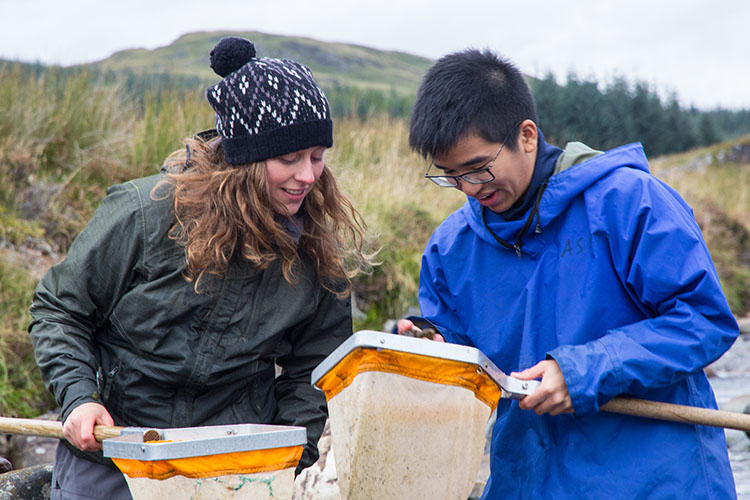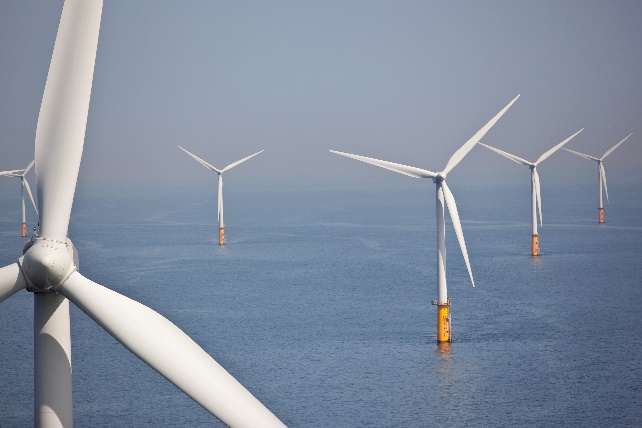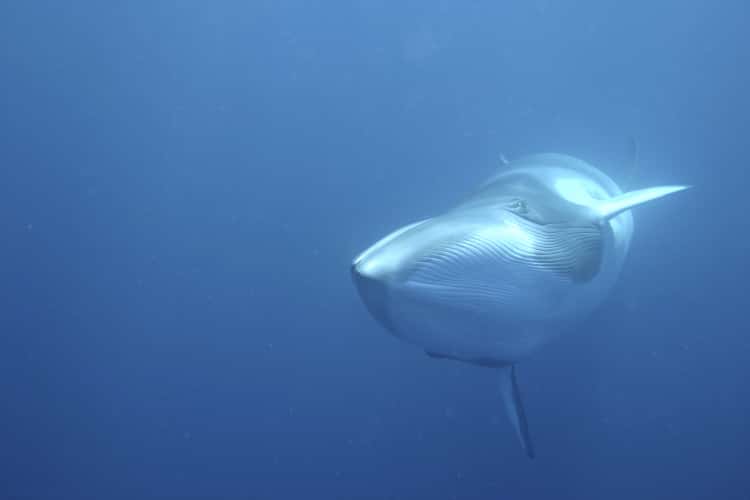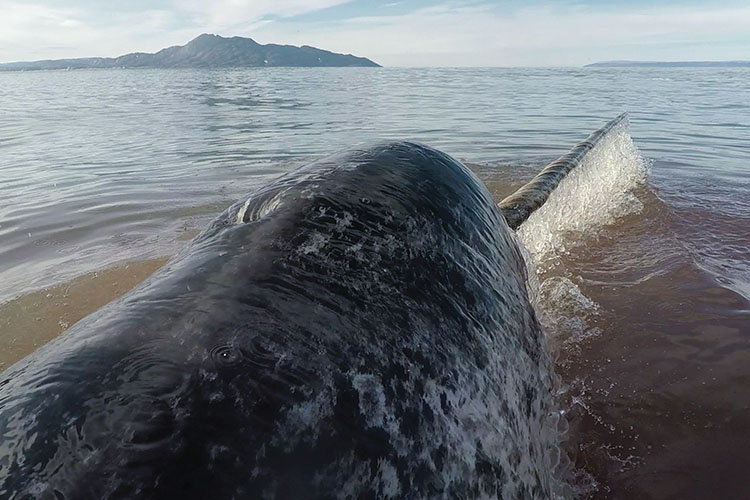Research impact
Research at Scotland’s oldest university amongst the highest quality in the country.
Over 84% of research carried out by the School of Biology is world-leading or internationally excellent, according to the results of the Research Excellence Framework (REF 2021) published today (Thursday 12 May).
The REF – a detailed analysis of the research strengths of all UK universities – found that St Andrews excelled in a number of key research areas – including Biology.

Picture: Students examining nets.
The School of Biology has improved the proportion of its research-output in the very highest category and is now in the top 20 nationally for our research environment, despite a catastrophic fire at the Biomolecular Science Research Complex during the assessment period.
Professor Frank Gunn-Moore, Head of the School of Biology said: “We take this as an endorsement of our strategy of cultivating talented early-career research fellows, the major investment in the Scottish Oceans Institute at East Sands, and recognition of our success in Athena Swan Gold award, the first in Biology in Scotland, and one of only 3 across the UK in Biology. Seventy percent of our research impact has been judged to be world-leading or internationally excellent, and we continue to deliver science that makes a tangible and positive contribution to society.”
REF found that the overall quality of research at St Andrews had increased by 5.7 % since the last assessment exercise in 2014.
St Andrews Principal and Vice-Chancellor Professor Sally Mapstone FRSE said: “The overall quality of our research has increased significantly since the last REF in 2014, we have cause to celebrate the achievements of several of our Schools whose research is rated amongst the best in the UK, and the fact that over 88% of the research we produce in this small corner of Fife has been held to be world-leading or internationally excellent is a remarkable achievement.”
Although REF itself explicitly does not rank universities according to research strengths, the metrics it produces are widely used in the higher education sector and in the media to benchmark research performance.
According to these figures, using the method of Grade Point Average (GPA) St Andrews was ranked 3rd in Scotland and 28th in the UK, one of six Scottish universities ranked amongst the top 50 research institutions in the UK.
Research at the School of Biology which REF judged to be world-leading included:
- Enabling environmentally sustainable growth of the marine renewable energy industry
- Integrated strategies and training to improve potato production and hence food security in Sub-Saharan Africa
- Improving management of the risk to cetaceans of US and European naval sonars
Full details of the Research Excellence Framework 2021 is available via https://www.ref.ac.uk/
University of St Andrews REF 2021 results are available at:
https://www.st-andrews.ac.uk/research/showcase/excellence/ref-2021/
Research impact
Growth in marine renewable energy (MRE) generation is critical to meeting CO2 reduction targets.
Research in the University of St Andrews (USTAN) School of Biology has estimated the exposure to sonar that causes specific behavioural responses in cetaceans (whales, dolphins and porpoises).
The potato is a critical crop for food security and poverty reduction in sub-Saharan Africa, and production in the region is severely limited by disease, climate and availability of healthy planting.
The UK hosts approximately 40% of the world’s grey seals and 30% of the eastern Atlantic subspecies of harbour seal. These species are used by governments as indicators of marine environmental health.
Future growth in seafood consumption is predicted to come from aquaculture, and the application of genetics is essential for meeting this demand.


.jpg)

